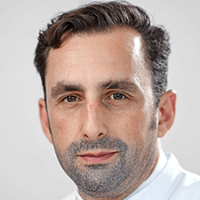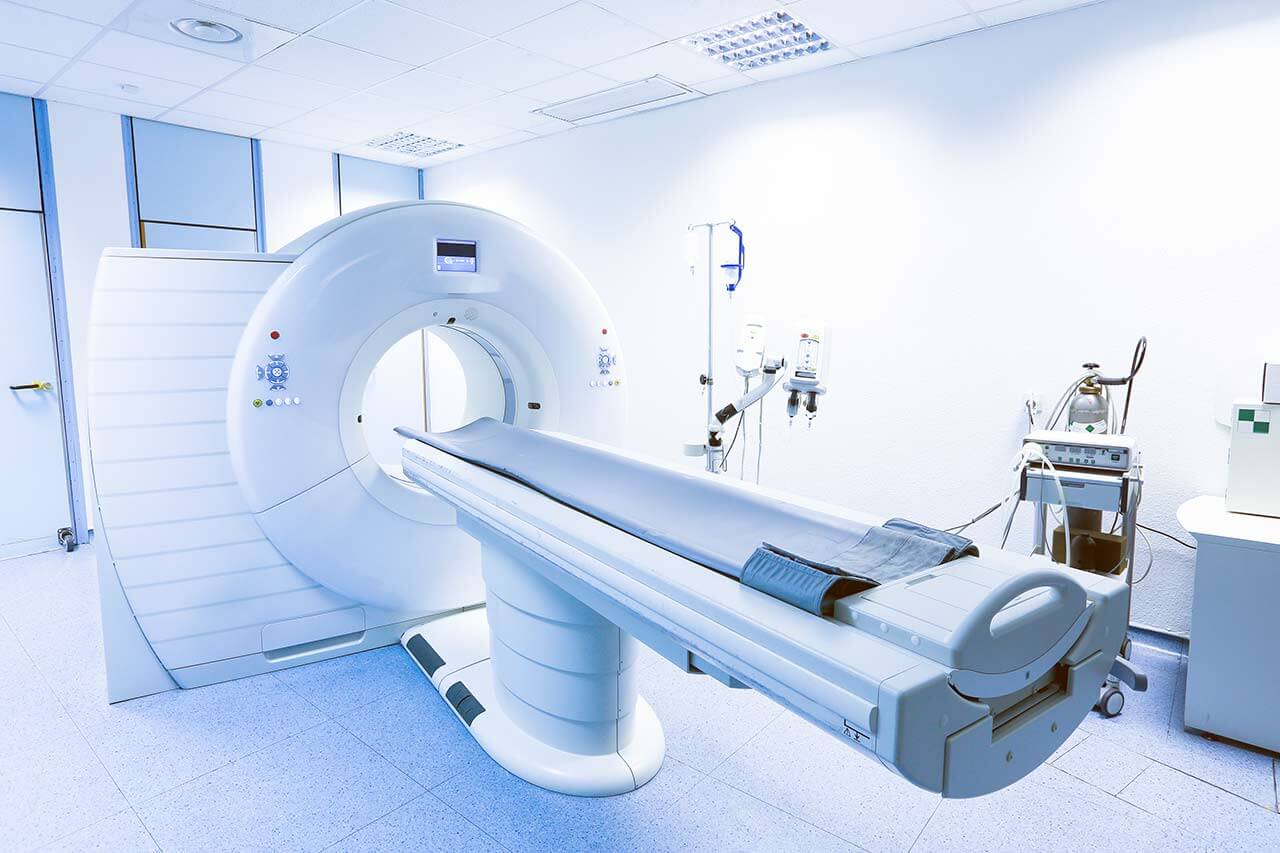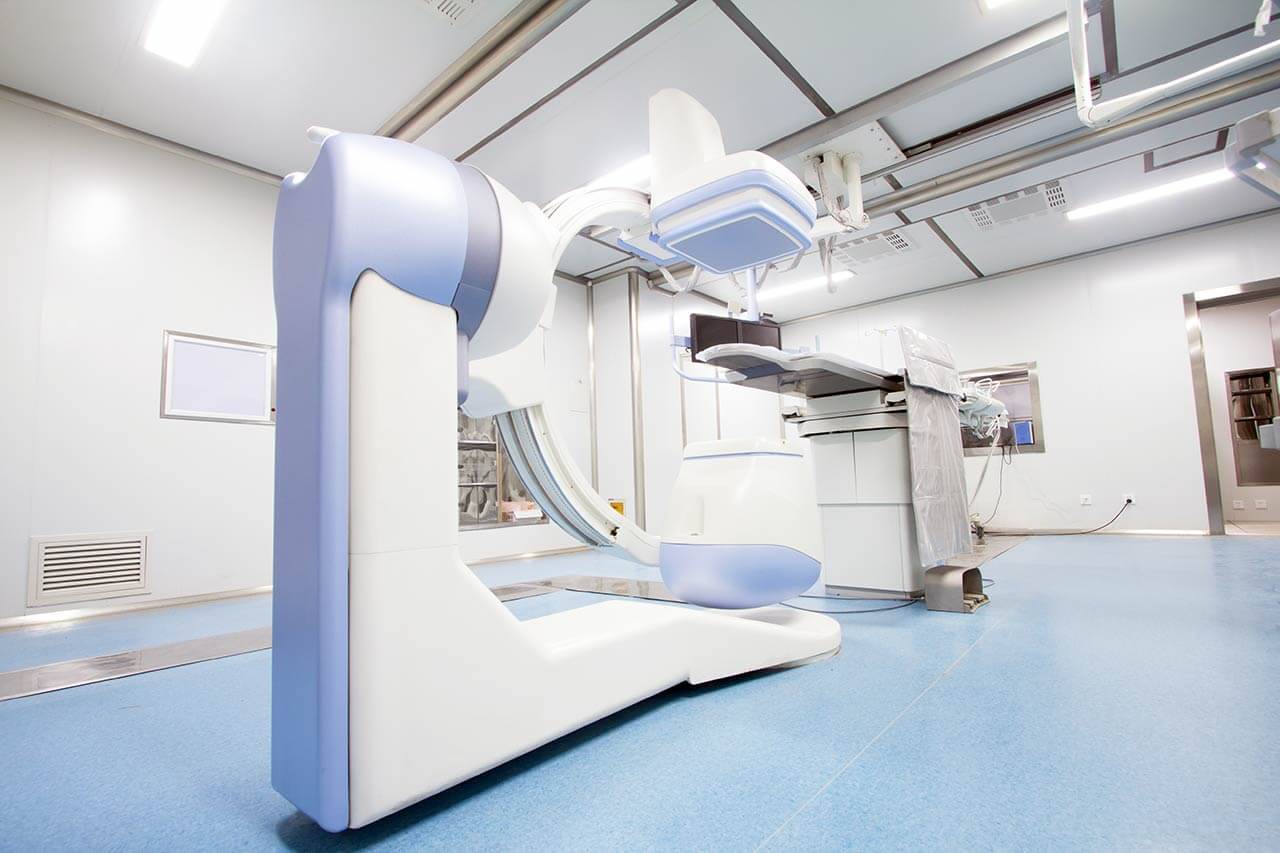
The program includes:
- Initial presentation in the clinic
- clinical history taking
- review of medical records
- physical examination
- laboratory tests:
- complete blood count
- biochemical analysis of blood
- inflammation indicators (CRP, ESR)
- indicators blood coagulation
- TSH-basal
- blood gas analysis
- chest x-ray examination
- bronchography
- pulmonary function test
- bronchoscopy with biopsy
- histological and microbiological examination
- measurement of arterial blood pressure
- electrocardiogram (ECG)
- echocardiography (ECHO)
- high-resolution computed tomography (HR-CT)
- preoperative care
- lung resection in the lung abscess
- examination of the remote tissues
- symptomatic treatment
- control examinations
- the cost of essential medicines and materials
- nursing services
- full hospital accommodation
- explanation of future recommendations
Required documents
- Medical records
- X-ray examination, MRI/CT scan (if available)
Service
You may also book:
 BookingHealth Price from:
BookingHealth Price from:
About the department
The Department of General and Abdominal Surgery, Endocrine Surgery, Hepatopancreatobiliary Surgery, Hernia Surgery, Colorectal Surgery, Thoracic Surgery, Vascular Surgery and Bariatric Surgery at the University Hospital Greifswald offers the full range of services in these medical fields. The department is equipped with modern operating rooms for both classical open and sparing minimally invasive surgical interventions, which significantly reduce blood loss and minimize the risk of complications. The department's specialists have outstanding qualifications and unique clinical experience, which allows them to perform complex interventions. The priority areas of the department's work are abdominal cancer surgery, operations for vascular pathologies, and interventions to treat lung diseases. In total, the department performs more than 3,000 surgical procedures annually. Prior to surgery, patients undergo full diagnostics and receive a comprehensive consultation on the upcoming treatment and postoperative recovery. The department is headed by Prof. Dr. med. Stephan Kersting.
Of particular interest in the practice of the department's clinicians is treating abdominal cancers. Colon cancer is one of the most common and life-threatening types of cancer in this group, so surgeons pay special attention to its treatment. An important method for diagnosing colon cancer is a colonoscopy (an endoscopic examination) with a biopsy. This technique allows doctors to examine the colon from the inside and reliably detect pathological changes, if any. If a malignant process in the colon is detected in its early stages, the department's specialists can perform endoscopic treatment without resorting to open surgery. However, patients often do not seek medical attention at the right time when surgery is required. Each clinical case of colon cancer is considered during an interdisciplinary tumor board, where surgeons, oncologists, radiation therapists, and other doctors are necessarily present. The surgical resection of the colon tumor or a portion of the affected organ is the mainstay of treatment for colon cancer. Whenever possible, the department's surgeons prefer low-traumatic operations. Surgical treatment is often supplemented with chemotherapy and/or radiation therapy.
An innovative treatment that has been successfully used in patients with metastatic colon cancer is hyperthermic intraperitoneal chemotherapy (HIPEC). The procedure consists of the following two stages: cytoreduction (removal of all foci of metastasis in the abdominal cavity) and hyperthermic intraperitoneal chemotherapy (a single administration of a solution of chemotherapeutic agents heated to 42-43°C into the patient's abdominal cavity). This form of chemotherapy allows doctors to directly target the tumor with a high dose of chemotherapy, eliminating the severe side effects typical of intravenous drug administration. In addition, heating chemotherapeutic agents to high temperatures enhances their effectiveness by penetrating deeper tissue layers. The HIPEC technique also provides good results for rectal cancer, gastric cancer, pseudomyxoma peritonei, and peritoneal mesothelioma. The procedure is available only at leading German medical facilities.
The department's team of hepatopancreatobiliary surgeons is responsible for performing surgeries to treat liver, gallbladder, biliary tract, and pancreatic diseases. A large number of surgical interventions include operations to remove liver tumors and liver metastases, operations to remove calculi due to gallstone disease, and operations to remove pancreatic cysts and tumors. In many cases, the department's surgeons manage to perform the operation using minimally invasive techniques, so that patients do not need a long hospital stay. Following such surgical procedures, a patient does not experience any severe pain, and the risks of postoperative complications are almost zero.
The department's endocrine surgeons focus on patients with thyroid diseases such as goiter, cysts, and benign and malignant neoplasms. Patients are offered low-traumatic operations to treat the above-mentioned pathologies. During interventions for thyroid cancer, advanced neuromonitoring systems are used to exclude damage to the recurrent laryngeal nerve (such damage can provoke voice disorders or even its complete loss). Such an approach by the specialists to operations for endocrine diseases contributes not only to high efficiency but also to the safety of surgical treatment.
Surgical procedures for hernia repair are also demanded in the department. The department's doctors treat inguinal, umbilical, femoral, incisional, and epigastric hernias. The specialists have particular experience in the provision of medical care to patients with recurrent hernias. Physicians have at their disposal both conventional open and laparoscopic surgical techniques. Most often, surgeons perform Lichtenstein hernioplasty, Bassini hernioplasty, and Shouldice hernioplasty, as well as total extraperitoneal hernioplasty and transabdominal preperitoneal (TAPP) hernia repair. It is these methods of hernia repair that are considered the most effective in modern European medicine.
An integral part of the work of the department's medical team is thoracic surgery. A key role in this field is played by the surgical treatment of malignant lung tumors. Surgical treatment is highly effective for lung cancer. In the early stages of lung cancer, sparing thoracoscopic surgery is preferred in the department. If the oncological process is in an advanced stage, thoracic surgeons strive to perform a low-traumatic operation, resorting to open surgery only in the most complex clinical cases.
The department's surgical options are complemented by the treatment of diseases of the arteries, veins, and lymphatic vessels. In this field, there is close cooperation with interventional radiologists, due to which, in most cases, vascular interventions are performed without any large skin and soft tissue incisions, through punctures or miniature incisions, using catheter-based techniques. Doctors effectively treat circulatory disorders in the upper and lower limbs caused by obstruction, carotid artery stenosis, abdominal aortic aneurysms, varicose veins, renal artery stenosis, etc.
The department also includes a specialized Bariatric Surgery Center, whose specialists perform surgery for morbid obesity. The main indications for bariatric surgery are the inability to lose weight with the help of diet therapy, physical activity, and drug therapy, a body mass index of more than 35 kg/m² in the presence of severe concomitant diseases, and a body mass index of more than 40 kg/m². The department offers the following four operations to treat morbid obesity: intragastric balloon placement, gastric banding, gastric bypass, and sleeve gastroplasty. The optimal type of intervention is prescribed on an individual basis based on the particular clinical data. The therapeutic effect after each of the operations is achieved by reducing food portions and preventing malabsorption of nutrients.
The department's range of medical services includes:
- General and abdominal surgery
- Surgery for stomach diseases
- Surgery for stomach ulcers
- Surgery for benign stomach tumors
- Surgery for malignant stomach tumors
- Surgery for gastrointestinal bleeding
- Surgery for colon diseases
- Surgery for colon cancer
- Surgery for colon obstruction
- Surgery for benign colon neoplasms
- Surgery for colon adhesions
- Surgery for diverticulitis
- Surgery for intestinal ischemia
- Surgery for esophageal diseases
- Surgery for a Zenker's diverticulum
- Surgery for esophageal cancer
- Surgery for esophageal varices
- Surgery for gastroesophageal reflux disease
- Surgery for traumatic esophageal injuries
- Surgery for bone and soft tissue sarcomas
- Surgery for stomach diseases
- Endocrine surgery
- Surgery for thyroid diseases
- Surgery for goiter
- Surgery for thyroid cysts
- Surgery for benign thyroid tumors
- Surgery for thyroid cancer
- Surgery for parathyroid diseases
- Surgery for hyperparathyroidism
- Surgery for thyroid diseases
- Hepatopancreatobiliary surgery
- Surgery for liver diseases
- Surgery for liver cysts
- Surgery for benign liver tumors
- Surgery for malignant liver neoplasms
- Surgery for liver metastases
- Surgery for gallbladder and biliary tract diseases
- Surgery for cholecystitis
- Surgery for cholecystolithiasis
- Surgery for biliary stenosis
- Surgery for gallbladder and bile duct cancer
- Surgery for pancreatic diseases
- Surgery for pancreatic cancer
- Surgery for acute and chronic pancreatitis
- Surgery for pancreatic cysts
- Surgery for congenital pancreatic malformations
- Surgery for traumatic injuries of the pancreas
- Surgery for liver diseases
- Hernia surgery
- Liechtenstein hernioplasty
- Bassini hernioplasty
- Shouldice hernioplasty
- Total extraperitoneal hernioplasty
- Transabdominal preperitoneal (TAPP) hernia repair
- Colorectal surgery
- Surgery for rectal cancer
- Surgery for adenomatous polyps
- Thoracic surgery
- Surgery for lung cancer
- Surgery for mediastinal tumors
- Surgery for inflammatory lung diseases
- Vascular surgery
- Surgery for circulatory disorders in the upper and lower limbs
- Surgery for abdominal aortic aneurysms
- Surgery for carotid artery stenosis
- Surgery for acute vascular occlusion
- Surgery for varicose veins
- Surgery for dialysis access formation
- Bariatric surgery
- Intragastric balloon placement
- Gastric banding
- Gastric bypass
- Sleeve gastroplasty
- Other surgical options
Curriculum vitae
Higher Education
- 2010 - 2012 Master's Degree in Healthcare Management, Dresden University of Technology.
- 1995 - 1999 Human Medicine studies and thesis defense, Ludwig Maximilian University of Munich.
- 1993 - 1995 Human Medicine studies and state exams, Albert Ludwig University of Freiburg.
Professional Career
- Since 2020 Head of the Department General and Abdominal Surgery, Endocrine Surgery, Hepatopancreatobiliary Surgery, Hernia Surgery, Colorectal Surgery, Thoracic Surgery, Vascular Surgery and Bariatric Surgery at the University Hospital Greifswald.
- 2017 - 2020 Deputy Head Physician of the Department of Hepatology at the University Hospital Erlangen.
- 2015 - 2017 Medical Director at the St. Joseph Hospital.
- 2014 - 2017 Head Physician at the St. Joseph Hospital.
- 2010 Habilitation. Subject: "Regeneration and proliferation of cells of the islets of Langerhans".
- 2000 - 2013 Senior Physician at the University Hospital Carl Gustav Carus Dresden.
Special Clinical Interests
- Minimally invasive and classical operations for liver, pancreatic, intestinal, stomach, and esophageal cancers.
Memberships in Professional Societies
- German Society for General and Visceral Surgery (DGAV).
- German Society of Surgery (DGCH).
- Working Group on Surgery (CAM) of the German Society of Surgery (DGCH).
Photo of the doctor: (c) Universitätsmedizin Greifswald
About hospital
According to the reputable Focus magazine, the University Hospital Greifswald is included in the ranking of the best medical complexes throughout Germany!
The hospital is one of the oldest healthcare facilities in Germany, with long traditions and an excellent reputation. The history of the hospital begins in 1456, when the Faculty of Medicine at the University of Greifswald was founded. During this time, the hospital has managed to earn recognition in the national medical arena and gain prestige abroad. The hospital has 19 institutes and 21 specialized departments. The key to successful clinical practice is the combination of state-of-the-art equipment and highly qualified medical personnel who are actively engaged in the development of effective medical techniques and implement them in everyday practice.
The medical team of the university hospital has more than 4,400 employees, including world-famous professors who regularly undergo advanced training in the leading European and American hospitals, where they share their experience with foreign specialists. The doctors at the medical facility annually treat about 180,000 patients. At the same time, the specialists often provide medical care to patients with complex clinical cases, even in those cases that doctors at other medical centers consider hopeless. The hospital has more than 1,000 beds for inpatients, and many highly-specialized outpatient clinics are available in the medical facility for counseling and outpatient medical care.
The hospital presents all the fields of modern medicine. According to Focus magazine, the medical complex is recognized as one of the best in Germany for treating bowel cancer, bladder cancer, malignant brain tumors, skin cancer, multiple sclerosis, Parkinson's disease, dementia, cardiovascular pathologies, knee and hip pathologies, as well as ophthalmic and proctologic diseases. Diagnostic and therapeutic procedures are carried out in strict accordance with national and international standards, which ensures top-class medical care.
The medical team at the hospital makes sure that each patient feels as comfortable as possible during the therapeutic process. Doctors and nursing staff show humanity and understanding, striving to support each patient in every possible way on the path to recovery.
Photo: (с) depositphotos
Accommodation in hospital
Patients rooms
The patients of the University Hospital Greifswald live in comfortable single and double rooms. The patient rooms are made in bright colors and are quite cozy. The furnishings of a standard patient room include an automatically adjustable bed, a bedside table, a TV, and a telephone. The patient room has a table and chairs for receiving visitors. There is also free Wi-Fi in the patient rooms.
If desired, patients can live in enhanced-comfort rooms. In such rooms, patients are additionally offered toiletries, a bathrobe, and a change of towels.
Meals and Menus
The patients of the hospital are offered three healthy and tasty meals a day: a buffet breakfast, a hearty lunch, and dinner. The hospital also houses a cafeteria where one can have a tasty snack, a cup of aromatic coffee, tea, or soft drinks.
Patients staying in enhanced-comfort rooms are offered a special menu with a wide range of main courses, appetizers, desserts, and drinks.
Further details
Standard rooms include:
Religion
The services of representatives of religions are available upon request.
Accompanying person
Your accompanying person may stay with you in your patient room or at the hotel of your choice during the inpatient program.
Hotel
You may stay at the hotel of your choice during the outpatient program. Our managers will support you for selecting the best option.




